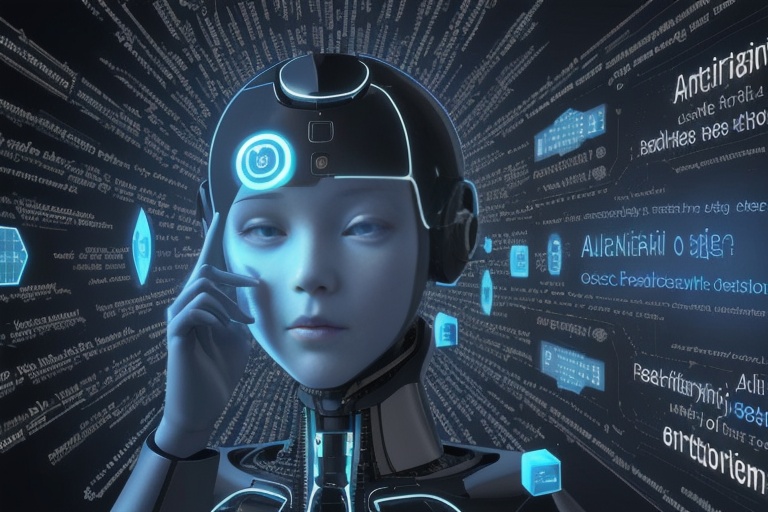The realm of artificial intelligence (AI) is a testament to human innovation, with each passing day unveiling new advancements and a growing wealth of techniques that propel technology forward. At the heart of these breakthroughs are individuals whose ingenuity and dedication have significantly influenced the shape and direction of AI. This article is dedicated to shining a light on 12 prominent AI leaders and researchers who have left an indelible mark on the field. They are not only pioneers who have laid the groundwork for modern AI but also luminaries guiding us toward a future rich with technological marvels.
The realm of artificial intelligence (AI) is a testament to human innovation, with each passing day unveiling new advancements and a growing wealth of techniques that propel technology forward. At the heart of these breakthroughs are individuals whose ingenuity and dedication have significantly influenced the shape and direction of AI. This article is dedicated to shining a light on 12 prominent AI leaders and researchers who have left an indelible mark on the field. They are not only pioneers who have laid the groundwork for modern AI but also luminaries guiding us toward a future rich with technological marvels.
Pioneers at the Forefront of AI
At the pinnacle of AI leadership is Andrew Ng, co-founder of Google Brain, whose pioneering work in deep learning has underpinned the rapid advancement of AI technologies. His commitment to the democratization of education in AI has been realized through Coursera, an online platform that brings knowledge to millions across the globe.
Standing alongside Ng is Yann LeCun, Chief AI Scientist at Facebook and a professor at New York University. LeCun's contributions have been instrumental in the development of convolutional neural networks (CNNs), a cornerstone of modern AI that enables machines to visually interpret the world with remarkable accuracy.
Shaping the Vision of AI
Fei-Fei Li's work in computer vision has catapulted the field forward. As the mind behind ImageNet, she has provided an invaluable dataset that serves as the foundation for countless computer vision models, exemplifying how data can be leveraged to train AI with stunning proficiency.
Not to be overlooked, Ian Goodfellow's name is synonymous with generative adversarial networks (GANs), a groundbreaking concept where two neural networks compete to enhance each other's capabilities. This has opened doors to new possibilities in data generation and has major implications for fields ranging from art to synthetic data creation.
AI in Academia and Industry
Geoffrey Hinton, often referred to as the 'godfather of deep learning', has made pioneering contributions to the development of neural networks. His advocacy for backpropagation as a learning technique has fundamentally altered the trajectory of AI research and application.
Daphne Koller's work has pivoted around the marriage of machine learning and biomedicine. A co-founder of Coursera, Koller has championed the intersection of AI and healthcare, demonstrating how AI can disrupt traditional industries by injecting them with new levels of efficiency and innovation.
The Democratization of AI Learning
The legacy of AI leaders is not only found in their technical contributions but also in their efforts to make AI knowledge more accessible. Sebastian Thrun, founder of Google X and an online education pioneer with Udacity, is exemplary of this movement, bringing AI education to the forefront of global consciousness.
Andrew Ng and Daphne Koller, through their work with Coursera, underscore the importance of democratizing access to learning. Their vision has paved the way for a world where anyone with internet access can benefit from high-quality AI and machine learning education.
Broadening AI's Horizons
The scope of AI's influence is broad, affecting emotional recognition through the work of pioneers like Maja Pantic, whose research in affective computing teaches machines to interpret human emotions. Similarly, Yoshua Bengio's contributions in deep learning have opened new pathways for AI, accelerating developments in language processing and other complex tasks.
Demis Hassabis, founder of DeepMind, has guided AI to achieve remarkable feats, including the creation of AlphaGo, an AI system that defeated a human world champion in the complex game of Go. It represents a leap forward in AI's ability to tackle problems with intuition and strategy.
The Next Generation of AI Leadership
The reach of AI is only set to grow, with researchers like Anima Anandkumar driving progress in tensors and their applications in machine learning, pushing computational boundaries. Pieter Abbeel's work on robotics and AI reveals how machines can learn from their environments, adapting to perform tasks autonomously.
Conclusion
The individuals highlighted in this article are but a snapshot of the many brilliant minds fueling AI's ascension. Each has played a pivotal role in advancing the capabilities of AI, shattering previous limitations, and laying the groundwork for future generations of AI enthusiasts and professionals. They have navigated uncharted territories of computer vision, deep learning, affective computing, and beyond, solidifying AI's role as a transformative power in modern society.
As AI molds our future, altering the landscapes of industries from healthcare to education, it is these leaders' relentless pursuit of innovation that ensures AI's potential remains unfettered. Their visionary work continues to inspire new legions of researchers, academics, and entrepreneurs, all united in the quest to explore the unbounded possibilities of AI. As we stand on the cusp of new AI frontiers, we owe much to these trailblazers who have not only redefined what is possible but also democratized the tools and knowledge, allowing us to dream of a future where AI elevates human potential to unprecedented heights.
Information for this article was gathered from the following source.




